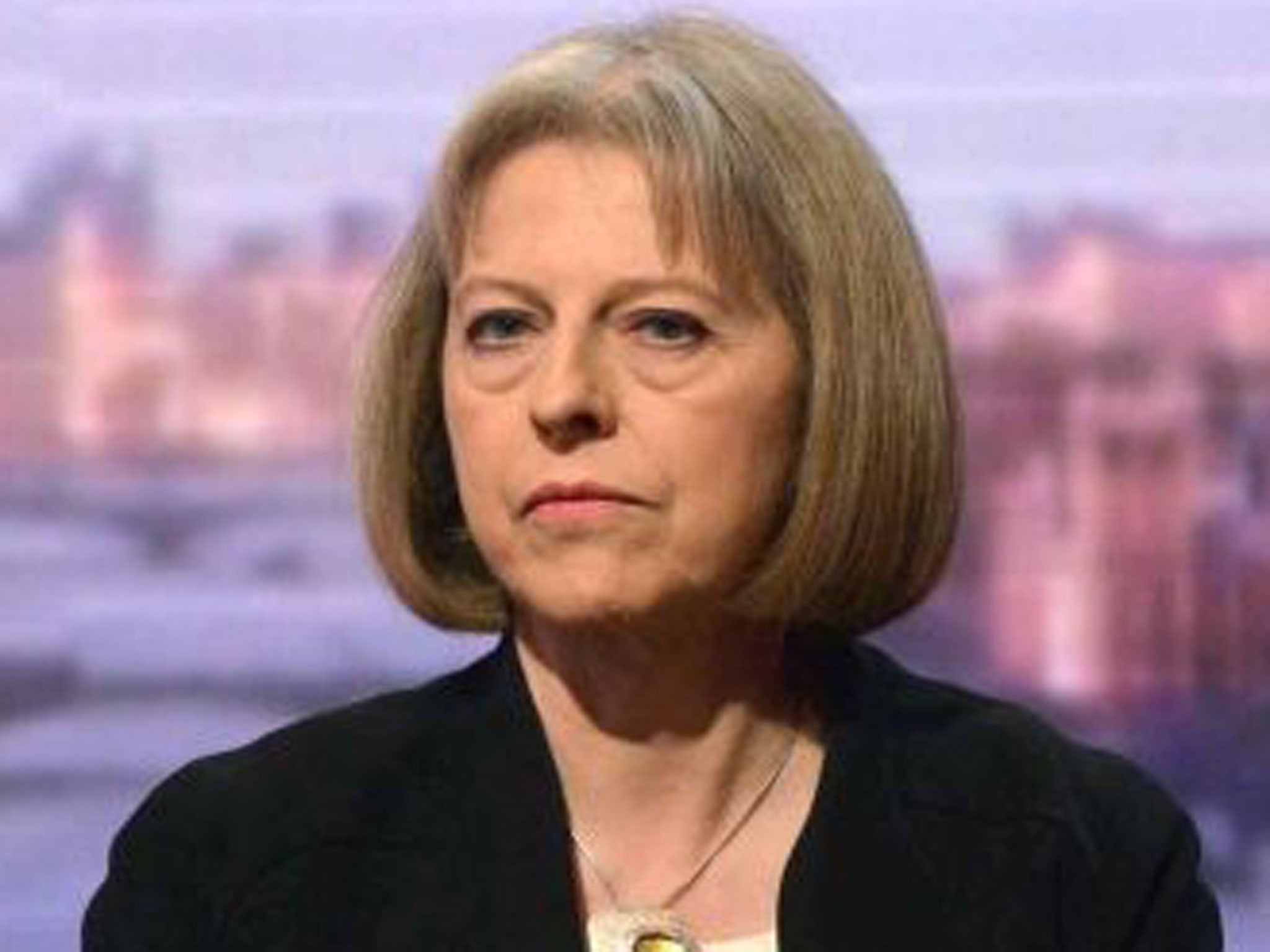Theresa May wants to avoid embarrassment over Edward Snowden rather than uphold the law
The Home Secretary's premature decision is enough to show she has prejudged the issue and her bias would make any subsequent decision open to challenge, says Geoffrey Robertson


Your support helps us to tell the story
From reproductive rights to climate change to Big Tech, The Independent is on the ground when the story is developing. Whether it's investigating the financials of Elon Musk's pro-Trump PAC or producing our latest documentary, 'The A Word', which shines a light on the American women fighting for reproductive rights, we know how important it is to parse out the facts from the messaging.
At such a critical moment in US history, we need reporters on the ground. Your donation allows us to keep sending journalists to speak to both sides of the story.
The Independent is trusted by Americans across the entire political spectrum. And unlike many other quality news outlets, we choose not to lock Americans out of our reporting and analysis with paywalls. We believe quality journalism should be available to everyone, paid for by those who can afford it.
Your support makes all the difference.Theresa May's secret (until it was leaked) threat to punish airlines if they dared to fly Mr Snowden to London and her promise that he “is highly likely to be refused entry to the UK” if they do, shows the length to which the Home Office will now go to avoid the rule of law.
Governments find it easier to bully commercial operators (the US pressured MasterCard and PayPal to drop WikiLeaks) to avoid embarrassment rather than apply the principles (in this case, freedom of speech) which they purport to believe.
Snowden would have a better chance of resisting extradition were he to enter the UK, where judges are fiercely independent and the European Court acts as a human rights longstop. In Hong Kong, judges are not noted for anti-government rulings and the Final Court of Appeal's decisions are reversible by the Chinese government, which might cut a deal with the US.
Were Snowden to reach Europe, however, he could resist extradition on charges under the US Espionage Act on the ground that this would be a breach of his Article 10 right to communicate information of importance to the European public (eg that their privacy was infringed by the NSA without the checks in place for American citizens) and contrary to Article 8 of the Convention.
If Snowden's claims about the illegality of NSA surveillance turn out to be wrong or exaggerated, he could still resist extradition if there was any prospect the charges could carry the death penalty or of him receiving the brutal treatment inflicted on Bradley Manning. This, and the likelihood of a larger-than-life sentence, could amount to disproportionate and inhumane treatment.
The Home Secretary's power to deny entry to those whose presence would be "detrimental to the public good" has been used in recent years only against those who incite terrorism, race hate or homophobia. Whistleblowers might be thought to be in a different category: how can their presence "be detrimental to the public good" unless that means (which it doesn't) causing embarrassment to America? Mrs May's premature decision is enough to show she has prejudged the issue and her bias would make any subsequent decision open to challenge. What the Government obviously fears is another Abu Qatada. But Snowden is not an advocate of terrorism and even his worst detractors do not accuse him of putting lives at risk.
Mrs May made her decision on Monday – shortly after Snowden broke cover. There is usually no time taken for deliberation when politicians are asked to approve an MI6 (ie CIA) request. This exemplifies the flaw in so called "regulation" of surveillance in Britain. Unlike other European countries and the US, warrants are granted by government ministers, not by judges. Until this change is made, civil liberties will be in the hands of politicians advised by unaccountable bureaucrats.
Geoffrey Robertson QC is co-head of Doughty Street Chambers and author of 'Crimes Against Humanity: The Struggle for Global Justice'. His latest book is 'Mullahs without Mercy: Human Rights and Nuclear Weapons'
Join our commenting forum
Join thought-provoking conversations, follow other Independent readers and see their replies
Comments